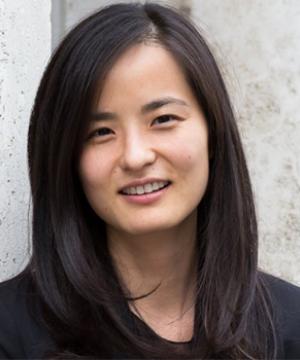Sarah Seo ’07 on the Careers in Law Teaching Program
Visiting Professor of Law, Columbia Law School (Spring 2019), Associate Professor of Law at The University of Iowa College of Law
Columbia Law School’s Careers in Law Teaching Program (CILTP) has a long history of preparing students and alumni for jobs in academia. CILTP provides comprehensive guidance, including one-on-one mentorship, job-talk training, moot interviews, and preparation for the annual Association of American Law Schools Faculty Recruitment Conference in Washington. We talked with six alumni whose experiences with the program helped guide them toward faculty positions at law schools across the country.
Sarah Seo is a legal historian of criminal law and procedure in the twentieth-century United States. After earning her J.D. from Columbia, she clerked for Judge Denny Chin, then on the U.S. District Court for the Southern District of New York, and Judge Reena Raggi of the U.S. Court of Appeals for the 2nd Circuit. Seo is the author of Policing the Open Road: How Cars Transformed American Freedom (Harvard University Press, 2019), which examines the history of the automobile to explain the evolution of Fourth Amendment jurisprudence and to explore the problem of police discretion in a society committed to the rule of law. Seo’s work has been published in the Yale Law Journal, Law and Social Inquiry, and Law and History Review, among others. While visiting at Columbia Law in the spring of 2019, she taught Criminal Investigations and the seminar Crime and Punishment in American History. She has an A.B. and Ph.D., both in history, from Princeton University.
How did the CILTP support you in your search for a job in academia?
I was able to take advantage of the job talk moot that the program organized when I was about to go on the entry-level market. The moot was an essential part of my preparations for law-school interviews, which are completely different from law-firm interviews.
When did you decide that you wanted to pursue a career in academia?
A career as a legal historian was on my mind by my third year of law school, after I had written a note on a legal history topic and had worked as a research assistant for John Witt, a legal historian on the Columbia Law faculty at the time. But I wanted to give legal practice a shot. I clerked after graduation, which gave me time to explore different practice areas and to consider which path to pursue. During my clerkships, I realized that the questions that most interested me were the “why” questions; for example, why were so many criminal cases drug cases? These questions were essentially about history, and I decided I wanted to spend my career trying to figure out those questions.
Are there any Columbia Law professors whose teaching style was inspirational?
Many! But there is one person I thought of in particular when I was trying to figure out what kind of teacher I wanted to be: Carol Sanger. She simultaneously exuded warmth and held high standards. That is much harder than many people realize. How does a teacher make the classroom comfortable for students to speak without relaxing standards of excellence? I’m still figuring that out, and I often think back to Family Law with Professor Sanger.
What advice do you have for current J.D. students or recent graduates who are considering academic careers?
Get to know your professors. You need them for mentoring and when applying for clerkships, fellowships, and jobs. Asking for a recommendation letter can be uncomfortable, and the process is much easier for both you and your recommenders if they know you.
What is the best thing about teaching?
Teaching is the best gig in the world. Every year, I meet students who are excited about studying law and open to learning about legal history. Students are so curious and are constantly asking great questions. I end up learning from them too.
# # #
Published on March 21, 2019
